David Califa was leading a group of food tourists in Istanbul in 2016 when three of them were killed in an Isis attack. But he was determined to go back to the city, its restaurants and his friends
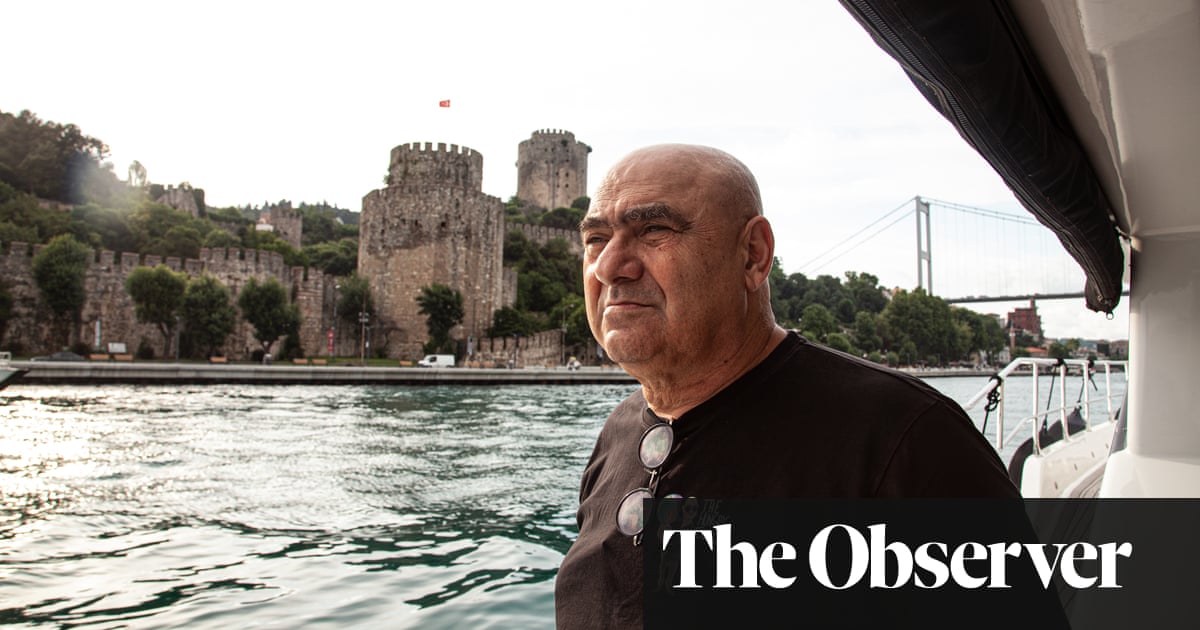
March 2016 was only the third time David Califa had taken a group of Israelis on his Hungry Tourist food tour to Istanbul. It was going well; he was happy showing people the city he loved. On the morning of the 19th they went to Hayvore, a restaurant in the heart of the central Beyolu district, for a breakfast of pide, a kind of Turkish pizza, sometimes made with ground meat or vegetables, often gooey with molten cheese and topped with a fried egg. Califa had planned that afterwards they would eat kfte at Husseins and visit the market to stop at his favourite fish shop Reat Balik where owner Ahmet Yazgne had the most delicious lakerda cured bonito. The group of 12 walked to Istiklal Caddesi, the elegant street at the heart of Beyolu, once lined with grand department stores and colonnaded arcades, now pedestrianised andfull of international chains and banks. They stopped for a group photo.
I heard a bang like a metallic slam, says Califa. Then I opened my eyes and there was smoke. Somehow he found he was still standing up, but his clothes were torn and his ankle was bleeding. I saw my friends lying in front of me. One woman was already dead. Others were terribly wounded. He saw too the body of the suicide bomber. My girlfriend took me by the hand and we sat down. It felt like ages waiting. Half an hour feels like a lifetime. Everyone was bleeding, everyone was shouting. Two of my friends died in front of me. An old man working in a small shop selling cheap scarves ran into the street with all the scarves and tried to staunch the bleeding and tie tourniquets. I remember looking up and people were at every window with phones.
A Turkish member of the Islamic State had detonated a suicide bomb. Four people were killed: three from Califas group, Simha Damri, 60, Yonatan Suher, 40, and Avraham Goldman, 69, as well as a passerby, an Iranian, Ali Reza Razmkhah whose two small children were among the 36 people injured.
Califas group were taken to different hospitals, where some needed extensive surgery; the Israelis quickly repatriated their citizens. Califa had shrapnel in his ankle. He was in hospital in Tel Aviv for a week. For a while he felt numb. Three months after the attack, he split up with his girlfriend. While I was sitting on the street, waiting for the ambulance, I realised life had changed. Even then I thought: I would not let the terrorists punish me twice, first with the loss of my friends and then to deny me a city I loved. I knew I would come back.
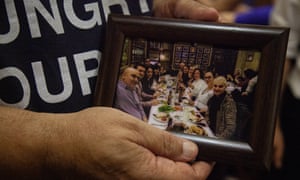
I first met David Califa in Spain; we were standing in front of the grill at the acclaimed restaurant Elkano on the Basque coast, watching whole turbot blister in the coals. He introduced himself pointing at his T-shirt that read, The Hungry Tourist, admitting with a laugh: But the truth is that I am not hungry very often.
Califas tours are high end and cost from 2,800-6,000 for 4-6 days. They take small groups to restaurants on the Worlds 50 Best list and impossible-to-book places: Noma in Copenhagen, Etxebarri in Spain, Saito the sushi god of Tokyo. Through his relationships with local foodies and chefs he has access to private dining rooms and special meals as well as insider knowledge of the best street food stalls.
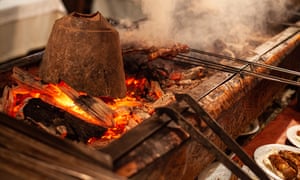
We met again in Istanbul in June, on the terrace of the Four Seasons on the Bosphorus. He took a picture of the perfectly pink lamb chops in front of us with his iPhone then put one on my plate, and then another. Stubbly, bald, with a round head and a round stomach, Califa is usually smiling, prompted by something delicious he has just eaten or something delicious he has given someone else to eat. He taps at his phone incessantly. He has an assistant in Israel, but hes essentially a one-man band, connecting, organising, booking; posting, posting all the time: Facebook, YouTube, Instagram, where he has 265,000 followers. Everyone in his photos is always grinning. I am trying to send people home with a memory they will never forget, he told me.
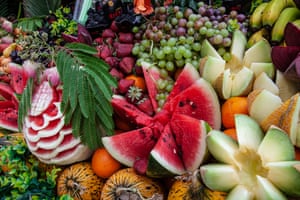
Now in his 60s, Califa was a trader for Salomon Brothers, retired when he was 40, played a lot of golf, loved travelling and eating, blogged about it, posted meals on social media, then organised food events with his girlfriend. The Hungry Tourist now has trips to Israel, Spain, Scandinavia, Japan, Thailand and Sri Lanka but the idea began in 2015, with Istanbul. He loved the city and had become frustrated with the lurching rhetoric of the Israeli media. One day we are friends with Turkey, our interests aligned, and the next day they are telling us we are enemies. The first two tours went well. Each time we came back with another 12 ambassadors, like I had planned. They told all their friends: Istanbul is an hour and a half away, the food is great, people actually quite like us. Thats all I wanted to make a small change. It was going great. Until we got hit.
Since the attack, his tours have taken on a new sense of purpose. More than the actual food, Califa is concerned with the experience of eating, the discovery of another culture, connections between people and places. Hes proud that many of his guests make genuine friendships on his tours. They have WhatsApp groups they organise dinners without me! A Turkish friend of his told me that in gathering people around a table, Dudi [Califas friends often call him Dudi, the diminutive of David] heals not only himself, but all the incorrect, unjust, unfair perceptions that people have and that is a very valuable thing.
There were more than a dozen terrorist attacks in Turkey in 2016. That June three Isis suicide bombers attacked Istanbul airport, in July elements of the Turkish army staged a botched coup and in the aftermath tens of thousands of people were arrested. Califa watched events from Tel Aviv. Another bomb, then a coup, another bomb. I started dreaming at night I was Istanbul and terrorists were attacking me from every corner. Stupid dreams, crazy stuff. I said: Ive got to do something about it because Im afraid to go to Istanbul. Five months after the bomb, he decided to go back. His friends tried to dissuade him, his therapist said it was not a good idea: Califa felt he had to confront his trauma. I think fear is the biggest constraint, he says.
He first went back in the autumn of 2016 but arranged to be with friends while he was there. With all the violence and instability, the Four Seasons was almost empty, the staff happy to see a returning regular guest. One of the booking agents who he knew well, and who had stayed with him in the hospital after the bombing, accompanied him to Istiklal Caddesi where it had happened. He visited many of the restaurants and food stalls from his tours. When I walked in the reaction was always the same, he says. The people I knew looked at me as if I was a ghost and then everyone would begin to cry. The waiters, the chefs, everyone. I was showered in love.
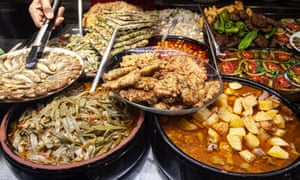
We retraced that visit this summer. Hizir Keskin, the proprietor of Hayvore where the group had breakfast that morning, had heard the bomb from inside his restaurant. I went out into the street to see what was happening and people were running away. I tried to reach them, I asked the ambulances where they were taking them. Keskin eventually found Califa in hospital. I felt so sorry, shocked, it was really bad. We talked a little but they didnt let me stay long.
His business, like most in Beyolu, had slumped 70% during 2016. It was never clear if the group had been targeted because they were Israeli, but Califa believed that Istanbul and its people had also been attacked. Keskin was deeply touched that Califa had returned. And he still comes, he comes regularly. I follow him on Instagram. Sitting together remembering, they hugged and patted each others arms and their eyes were wet with tears.
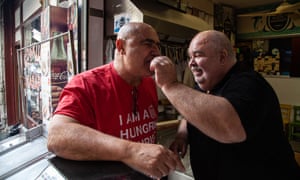
We went to Reat Balik, the fish shop Califas group were due to visit on the morning of the attack. When Ahmet Yazgne caught sight of Califa, his big white walrus moustache broke into a smile: Oh Dudi! My best friend! Oh, my brother! He cut a slice of salmon and fed Califa. Good, yes? Can I take a picture and post it on my new Instagram? He called for tea to be brought. The two big men hugged and grinned and cried on each others shoulders. Yazgne had been expecting Califa and his group when he heard the bomb go off. I wanted to find Dudi, is he good or not? he told me in his imperfect English. I didnt know. Terrorism is no good. Yazgne had asked his son to find Califas number in Israel and he finally reached him several days later. Dudi told me: I am alive! I thought, thank God. I was very moved, Califa told me. Hes Muslim, Im Israeli, but we are human.
This summers Hungry Tourist tour of Istanbul was unusually small; Califa admitted people were still wary of visiting Turkey. (This year Israeli visitor number to Turkey are up to over 400,000, but most are Israeli Arabs.) After a few last-minute dropouts, just three people came: a retired Israeli lawyer, a winemaker from California and a woman training in nutrition and astrology from Virginia. Together with Sinan Hamamsarilar, Califas guide and partner in Istanbul, we were a random crew. The winemaker was an adventurous sort, he had heard that Califas group had been attacked and he was interested to meet him. The Israeli knew of course, because the attack had been front page news, and was sanguine about it. For the Virginian the news of that kind of violence was a little alarming it was only the second time she had travelled outside the US. But although we avoided politics, it turns out that discussions of terrorism and trauma are now, sadly, pretty universal.
We ate high and low; browsed markets, cruised the Bosphorus to dinner. I began to understand the sophistication of Anatolian cuisine. At mlek Kurufaslye, high up on the Asian side, with a view of the whole city, we ate humble baked beans accompanied by a soothing tangy yogurt so thick you could stand a spoon up in it. I had always thought of doner as a cheap kebab; Hamamsarilar showed us how the doner masters layer marinated lamb and beef so that when it is grilled it becomes compressed and can be sliced in sheets. We ate at iya, featured in an episode of Netflixs Chefs Table, where the chef Musa Dadeviren showcases regional dishes; we ate artichokes stuffed with sour green plums and pine nuts and cherry kebab.Califa took us to one of his favourite places, Dnerci ahin Usta, set in a tiny niche in the gold souk: he had affectionately nicknamed it the hole-in-the-wall Doner. We watched as the doner-maker carved thin slices with a long knife. Califa told me the makers father, who had recently retired after a heart attack, had been the real master and showed me a video of the old man carving slices so thin that they fell from the spit like silk ribbons.
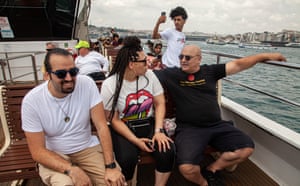
One morning we took the ferry to the Asian side of Istanbul for lunch. The Bosphorus churned with ships and boats and tugs; Califa put his phone away and sat beside me. He talked about the friends he had lost in the bombing: All three of them were better people than me. Two of them he had only met at the start of the tour, one, Yonni, he had felt an immediate connection with. He was fascinating and funny, witty, but quiet, self-contained. And we became friends, it was like magic, we understood each other and then he died in front of me. Whenever I remember him I see us here, on the top deck of the ferry, talking. These 20 minutes on the ferry are enchanted. You are not here and you are not there, you are between two continents.
Califa knows that their deaths are not his fault, but I cannot walk away from the fact that I brought those people here. He still has shrapnel in his ankle and at night it aches. The pain makes him remember that they saved me. They stood between me and the bomb.
Sinan Hamamsarilar has been on Califas tour in Israel several times. A few thousand Turks visit Israel each year, but most are on pilgrimage to Jerusalem. The first time Califa watched as Hamamsarilar posted pictures of his meals and videos of markets to his 155k followers on Instagram, with a growing realisation. I said, wow, you know, Califa stopped for a moment as the emotion choked his throat. We did it! We created this bridge. People on both sides can talk to each other. Turks are now the second highest nationality, after Americans, following the Hungry Tourist on social media. Its huge because I was trying to do this, and I lost friends doing this and suddenly Sinan comes to Israel and posts with so much love about Israel without any inhibition, without any fear, without any sense of political correctness in his own country and I said to Sinan, lets be partners!
Califa is determined to bring more Hungry Tourists to Turkey. This place is very important. We have to sell it to the world somehow, they have to understand, it will be word of mouth, Califa told me. He was optimistic, the autumn tour was already sold out and the winemaker from California had such a good time that he wanted to bring his wife and sons on a road trip through Anatolia planned for October.
Read more: https://www.theguardian.com/world/2019/sep/15/return-to-istanbul-david-califa-isis-attack

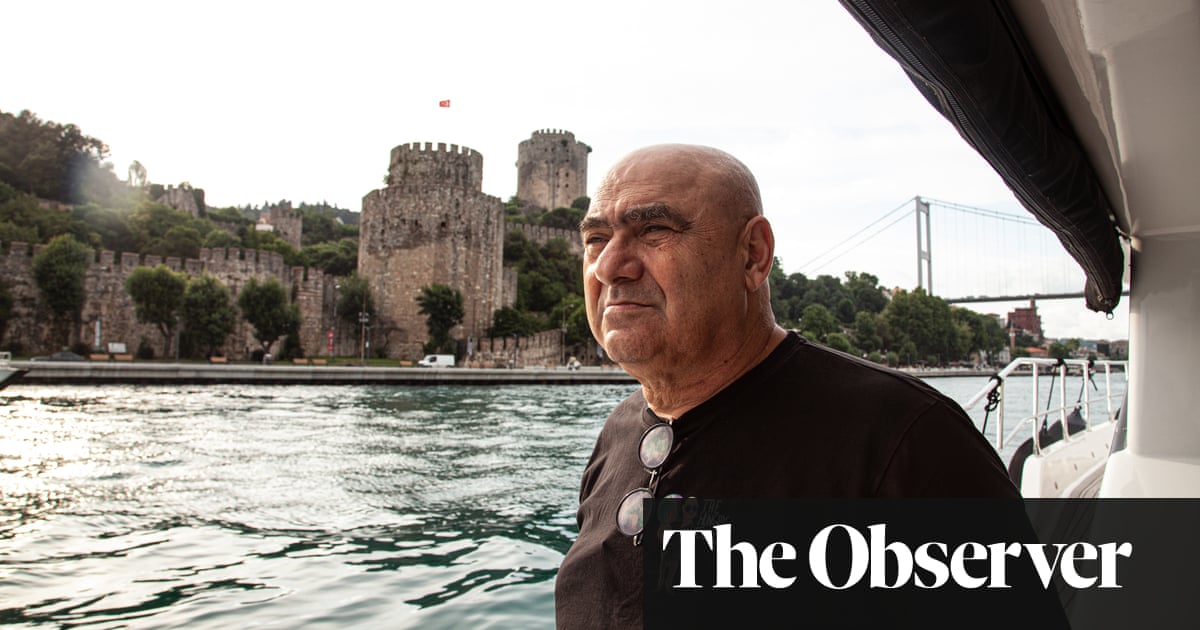
Recent Comments